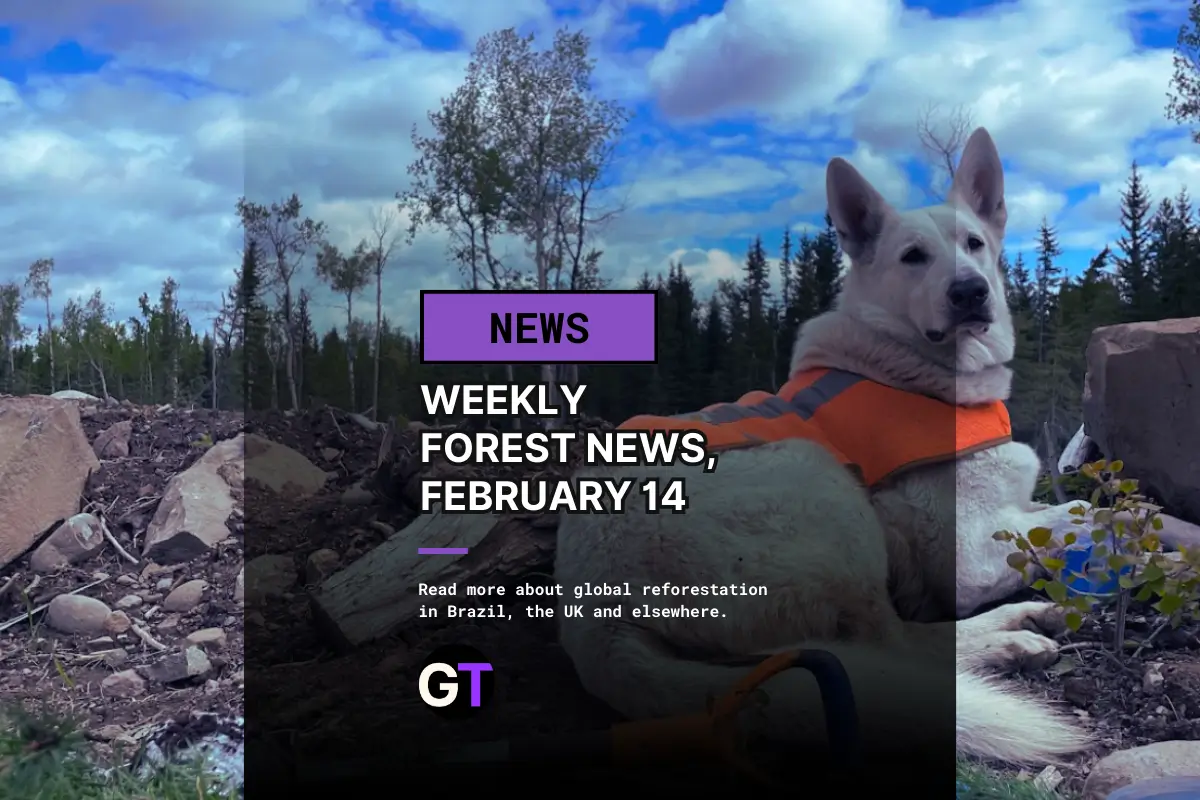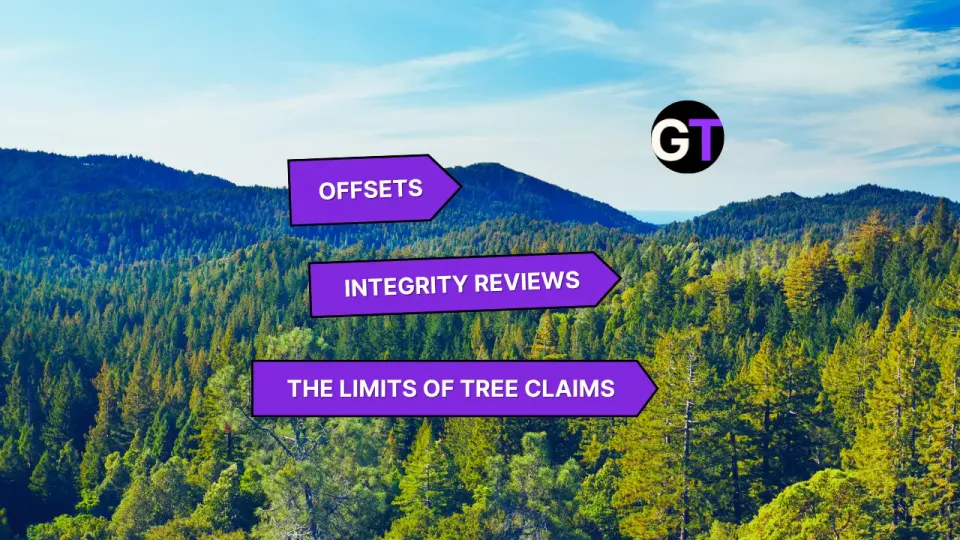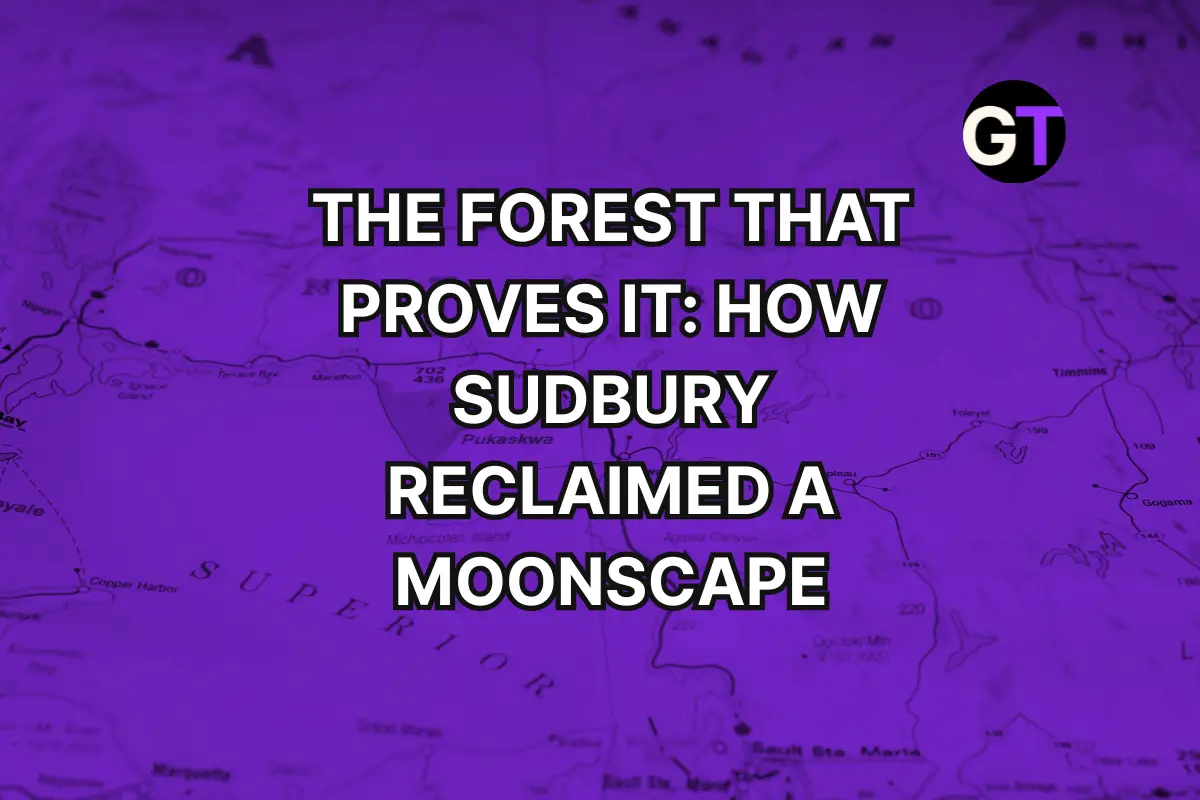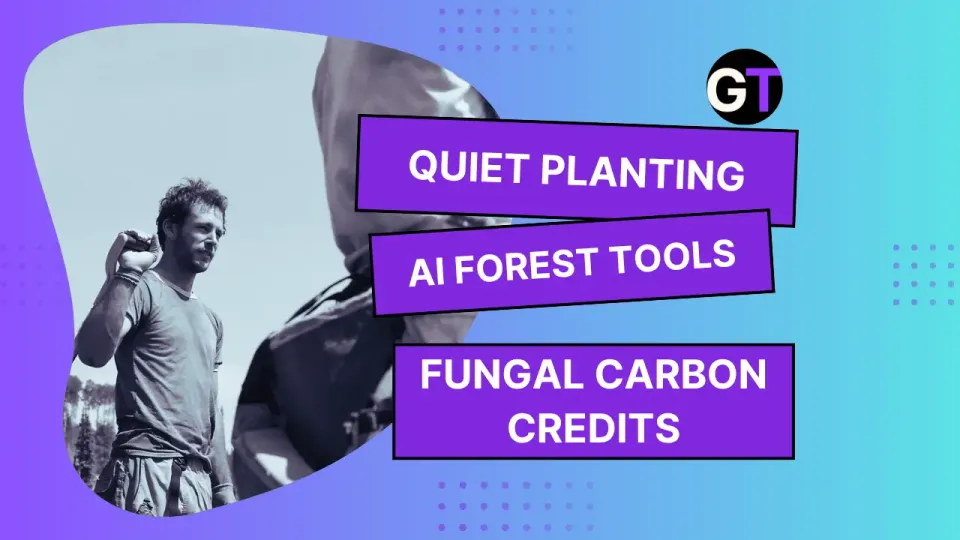Ground Truth Weekly Forest News February 14
Honduras & Korea collaborate on forest carbon markets; New York launches 25M tree tracker; only 17% of global peatlands protected.

Honduras and Korea Partner to Boost Forest Carbon Markets
Honduras and Korea have joined forces to collaborate on forest conservation and carbon markets. The five-year partnership will support REDD+ activities—reducing deforestation, enhancing forest carbon stocks, and managing forests sustainably.
Honduras has already reported national forest carbon data and REDD+ results for 2021–2023, which are now eligible as Internationally Transferred Mitigation Outcomes (ITMOs). The collaboration will include capacity building, knowledge sharing, and studies for a national UN REDD+ Program, with support from Coalition for Rainforest Nations and ITMO Ltd for carbon credit sales. We're excited to see what comes out of this.
Could this partnership set the stage for stronger forest-focused carbon markets globally?
👉👉 Read more from Rainforest Coalition
Open Data Charter on Environmental Transparency: Unlocking Climate Solutions
Open data is key to tracking environmental progress, holding leaders accountable, and solving climate challenges collaboratively. We've said it over and over again. This week, we spoke with Open Data Charter (ODC), an organization that promotes transparency by helping governments release climate data for public use.
ODC's successful projects in Uruguay and Chile have shown how open data can improve decision-making, from disaster response to forest restoration. In the interview we talk about how greater transparency could revolutionize reforestation efforts by providing consistent data on tree survival, biodiversity, and carbon sequestration.
How can open environmental data spark innovation in forest restoration?
👉👉 Read our interview on Ground Truth
UK Forest Research Seeks Woodland Managers for Climate Resilience Study
Forest Research is studying how climate change adaptation is integrated into woodland management plans. Private forest managers, including landowners and estate managers, are invited to share their plans and participate in a 45-minute interview.
The research will identify challenges and provide recommendations to enhance climate resilience in woodland management. Findings will be shared with key policymakers like the Forestry Commission and Scottish Forestry to guide future practices. Our sincere hope is that they will also share with the wider public.
Interested? Apply via the online form to take part.
👉👉 Read more in Forest Research
New York Aims to Track 25 Million Trees
New York’s Tree Tracker sets a high standard for transparency, allowing communities to log and track every tree planted toward the state’s 25-million-tree goal by 2033. With this detailed mapping, anyone can monitor progress by location and species, ensuring accountability and inspiring smarter reforestation. Backed by the DEC and Clean Water, Clean Air, and Green Jobs Environmental Bond Act, it’s a blueprint for data-driven climate action. Now if only mass reforestation woudl follow suit!
Could this be the gold standard for transparency in reforestation efforts?
👉👉 Read more on Ground Truth
Can the NWT Sell Conservation Credits to the World?
The Northwest Territories is exploring nature stewardship credits to reward communities for conserving and restoring land. In collaboration with the Pollination Foundation and First 30×30 Canada, the initiative could bring global investment and generate revenue for protected areas like Thaidene Nëné while supporting Indigenous-led stewardship and biodiversity conservation.
Could conservation credits become a key tool for protecting nature and fighting climate change?
👉👉 Read more in Cabin Radio
Historical Fire Records Reveal Critical Insights for Modern Wildfire Management
A new study compares historical fire-scar data (1600-1880) with recent wildfire patterns (1984-2022), showing that fires were more prevalent in the past, though recent wildfire severity and impacts are unprecedented. While recent large fire years like 2020 are not historically unusual in extent, rising fire severity and human impacts demand urgent investments in proactive fire management as climate change worsens conditions.
It also drives home a key point: sometimes areas devastated by wildfires don't always boucne back on their own. High-quality reforestation is needed now, more than ever.
What lessons can historical fire patterns teach us about preparing for the future?
👉👉 Read more in Nature Communications
PhD Opportunity: Restoring the UK’s Temperate Rainforests
Bangor University is offering a fully funded PhD to study temperate rainforest restoration in partnership with the Wildlife Trust’s Temperate Rainforest Restoration Programme. The project will investigate effective methods for tree establishment, bracken control, and biodiversity monitoring, focusing on long-term carbon sequestration and ecosystem resilience. Research will include field experiments in Wales and northern England, with findings shared across conservation, policy, and forestry sectors to advance restoration practices.
What innovative strategies can restore these rare and vital woodlands?
👉👉 Read more in Find a PhD
Global Evidence on How Natural Climate Solutions Impact Biodiversity and Human Well-being
A new study in uses machine learning to analyze over 250,000 studies on natural climate solutions (NCS), revealing significant biodiversity and well-being benefits, but also trade-offs. NCS, such as reforestation, have grown tenfold in research focus over three decades, yet evidence remains sparse in regions with high carbon mitigation potential. The findings offer critical insights to guide global climate and conservation policy.
Which natural climate solutions do you think offer the best balance of climate and biodiversity benefits?
👉👉 Read more in Nature Sustainability
This Week in Forest Finance: Indigenous-Led Funds, Tree-Planting, and Carbon Removal
The global reforestation movement is gaining traction with bold initiatives. Indigenous-led funds like Nusantara and IPAS are reshaping climate funding by giving local communities control over reforestation and conservation. Mast Reforestation raised $25 million to scale its biomass burial projects, combining carbon removal with wildfire recovery. Meanwhile, Washington’s expanded seedling production and California’s urban tree planting efforts aim to boost climate resilience. Read on to learn mroe about hwo's fundign tree-planting.
Are these investments enough to meet the growing challenges of climate change?
👉👉 Read our weekly column on Ground Truth
Brazil’s Voluntary Carbon Market: Unlocking Climate Finance for Restoration
A new article explores how Brazil’s voluntary carbon market (VCM) can drive large-scale restoration, despite policy delays and weak financial incentives. While the AFOLU sector represents nearly half of Brazil’s emissions, ensuring legal additionality without excessive bureaucracy is essential to align private investment with Brazil’s climate goals. The VCM’s potential is enormous—if barriers can be streamlined. We look forward to seeing whther Brazil will succeed at becoming the "Saudi Arabia of carbon credits" .
How can we balance regulatory oversight with accelerating climate finance?
👉👉 Read more in Springer Nature
Edited by Chris Harris

This work is licensed under a
Creative Commons Attribution 4.0 International License.




